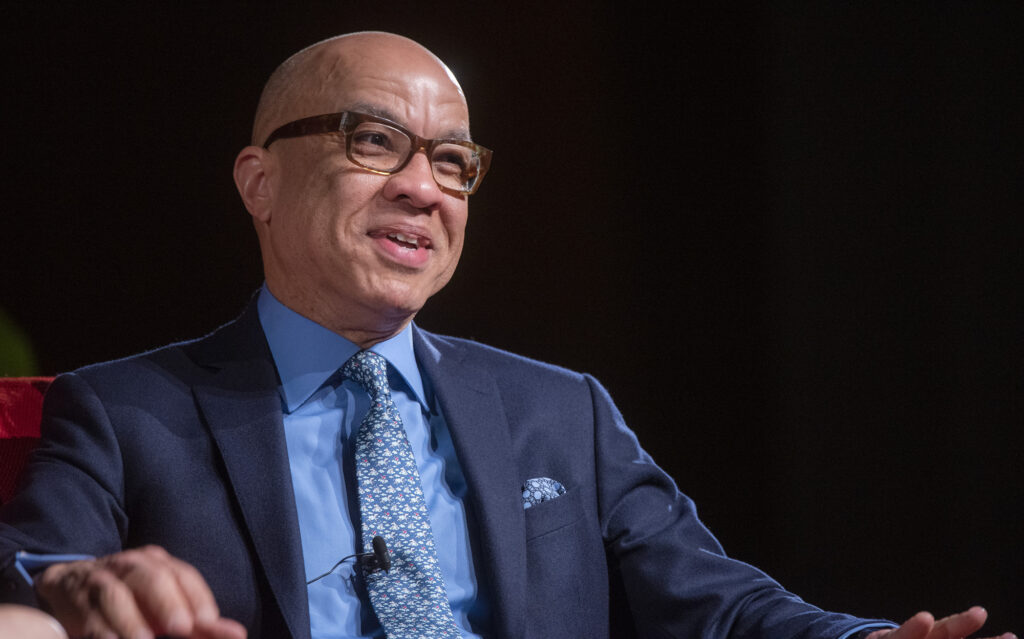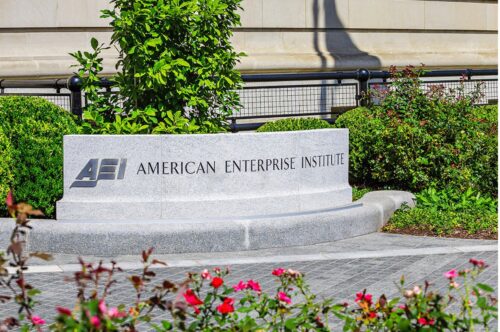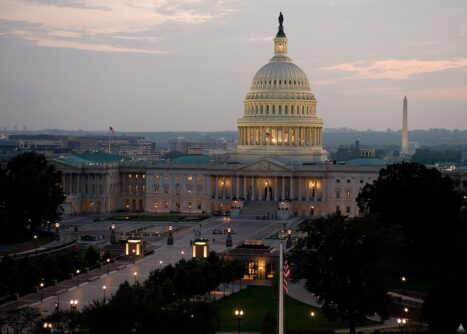Average Americans think that average Americans should fix our country’s problems. But Big Philanthropy has other plans.
Most Americans think of philanthropy or charity as benevolent activity undertaken among neighbors and fellow worshippers within small, local organizations and intended to alleviate immediate human needs—the sort of vibrant voluntarism celebrated by Alexis de Tocqueville’s Democracy in America.
There’s still plenty of that around. But the commanding heights of American philanthropy today are occupied by massive, well-heeled institutions that have nothing but contempt for that activity.
In fact, a similar contempt led to the formation of the first large grantmakers at the beginning of the twentieth century. As those foundations saw it, social policy in America needed to shift away from merely coping with the symptoms of problems—which is all one could expect from local amateurs inspired by retrograde morality and religious superstition. Instead, Americans needed to solve problems once and for all by getting to their root causes. That could only be done by empowering professionally trained elites who were steeped in the social sciences that held the key to root causes, and who operated through (typically distant) rationally ordered, centralized bureaucracies.
Today, the belief that philanthropy should be deployed to “solve problems once and for all” is no less powerful. But—perhaps reflecting frustration with a century of failed social programs—this belief no longer implies the application of technical knowledge by experts.
Instead, this philanthropic ideal is manifested in an effort to bring about deep structural change within society, challenging what are seen to be the fundamental institutional injustices of the economic and political orders. In the words of Darren Walker, president of the Ford Foundation—one of the most towering pillars of liberal establishment philanthropy in the United States—it’s time to move “from generosity to justice.”
This means shifting power once again, away from the detached professional class of managerial elites prized by the first stage of the philanthropic revolution. Since these elites were so often white and male, they were and are part of society’s structural injustice—so the story goes. They are now dismissed as “white saviors” in need of “decolonization.”
Current thinking therefore calls for putting foundation wealth directly into the hands of those who have been systematically victimized. Edgar Villanueva, the progressive author of Decolonizing Wealth, recently released a statement saying “philanthropy must take accountable action and release an unprecedented amount of unrestricted funds to fuel long-term Black-led movements for racial justice. This moment requires absolutely nothing less if we profess to be dedicated to justice.”
But ramping up funding alone isn’t enough, in Villanueva’s view. We need to change out the funders, as well. “In order for us to decolonize wealth, at least half of the people who make the decisions about where money goes—at least 50 percent of staff, 50 percent of advisors, 50 percent of board members—should have intimate, authentic knowledge of the issues and communities involved,” Villanueva writes in Decolonizing Wealth. “This means that some of the usual suspects, the white saviors, will have to give up their seats. They’ll have to step back, rather than just make a token seat open next to them.”
Since Villanueva’s book was released in October 2018, there’s scarcely been a professional meeting or training in the world of foundations that hasn’t featured his message.
Villanueva’s growing influence was made clear when Chicago’s progressive MacArthur Foundation selected John Gorham Palfrey VII to be president in early 2019. Palfrey is Theodore Roosevelt’s great-great-grandson, a graduate of Phillips Exeter Academy, Harvard (where he was co-captain of its undefeated championship squash team), Cambridge, and Harvard Law. Sterling credentials under the old system of managerial elitism, to be sure.
But search-firm president Vincent Robinson was brave enough to point out, as the title of his Chronicle of Philanthropyop-ed put it, that “MacArthur’s Choice of a White Man With a Pedigree Set Back the Fight on Racial Equity.” He maintained that, “until we have more leaders who reflect the people and causes they serve, we’re simply reinforcing many of the same patterns that have slowed progress for decades.”
Palfrey announced recently that MacArthur would add $125 million to the $1.7 billion that Ford and others are devoting over the next three years to the fight against the “global pandemic and the epidemic of social injustice.” He insisted that it was time for us to “grapple with our white privilege and our complicity in maintaining systems of oppression and racial and ethnic inequity in the United States.”
But, Palfrey added, “we are asking ourselves: What more can we do? How can we act differently against the backdrop of this historic time to bring about a more just and equitable recovery with racial and ethnic equity at the core of what we do?”
Were Villanueva and Robinson willing to answer Palfrey’s question, we suspect they might say: first, thanks for the $125 million. And by the way, thanks for agreeing that your great-great-grandfather’s statue in front of the American Museum of Natural History is racist and must come down. But were we not clear? The “more you can do” is pretty simple: step aside and let one of us take your place!
It’s hard to see how progressive foundations can resist this demand much longer, since they were themselves the chief bankrollers of the structural-injustice critique for the past two decades.
There’s more wealth than ever at stake in this attitudinal shift toward legitimate foundation leadership. Overall, according to the comprehensive Giving USA 2020 report, foundations made grants in 2019 totaling more than $75 billion, which is about $500 million more than in the previous year and almost double what they gave away in 2004.
A GAP IN UNDERSTANDING
Whether Big Philanthropy’s power is in the hands of detached professionals or radical activists, it is very far from what everyday American citizens have in mind when they think of charitable activity.
Comparatively little polling is done about attitudes toward philanthropy, but according to an Independent Sector survey released in June, most people—36 percent—thought “everyday people” were best positioned to solve social problems, compared with only 12 percent who thought foundations and rich individuals were. A wide-ranging 2015 Philanthropy Roundtable survey found that people prefer to contribute their own dollars to local charities, with 71 percent putting them above all other options; national causes were next, at 18%. In response to another question, 34 percent said they were more willing to support religious charities than all other listed types; political recipients registered at a mere 1 percent.
Yet many large foundations are moving ever closer to political engagement. It seems, at times, like the only factor preventing them from crossing the legal line into actual, outright political activity is cautionary advice from lawyers. Every gathering of philanthropic professionals resounds with the cry that now is the time to push for a new era of social justice, by whatever means necessary—and those means clearly include as much politics as foundations can get away with.
Few Americans have any knowledge of Big Philanthropy’s radicalism, but all of them have a substantial stake, thanks to the charitable tax breaks provided foundations, in today’s politicized philanthropy. Ironically, progressive philanthropy’s first order of business is to extract even more resources from American citizens in order to fund government programs reflecting the new understanding of social justice.
NOT A HEALTHY MIX
If American philanthropic institutions were noted for their variety of contending social and political perspectives, this might be tolerable. But, in fact, relatively few foundations explicitly espouse conservative points of view (the Charles Koch Foundation is not only much more libertarian than it is conservative, it is also an outlier in the philanthropic space). Writing eight years ago in The New Leviathan, David Horowitz and Jacob Laksin estimated that liberal foundations sported a ten-to-one advantage over conservative ones. And that was before the recent flood of Silicon Valley’s billions into the leftward column of the philanthropy ledger.
The primary response to this massive imbalance by conservative philanthropic institutions has been woefully inadequate. Shying away from direct criticism of the Left’s structural-injustice argument, most conservatives have instead persisted in defending the prerogative of foundations to do whatever they want. In an earlier time, this might have meant preserving space for conservative philanthropic voices within a vibrant and diverse civic sector. But given the near-uniform leftism of American philanthropy today, this line of approach means that conservatives have essentially become the most diligent defenders of the right of progressive foundations to reshape America as they see fit.
Furthermore, although conservatives frequently cite Tocqueville in their defense of untrammeled philanthropic freedom, today’s situation is very far indeed from what the great Frenchman had in mind. Tocqueville would have been appalled at the highjacking of his defense of local voluntary associations by defenders of elite prerogatives on both the right and the left.
It’s time for a new conservative approach to this state of affairs. We must explore ways to check, perhaps even diminish, the power of Big Philanthropy in America, free from the illusion that it should be able to do whatever it wants to reshape our political life. A number of counter-efforts could and should seriously be considered.
Those efforts include deeper scrutiny of philanthropy and its role in politics by nonprofit watchdogs and/or Congress—which scrutiny has a long and noble history in America. If and when warranted, Congress could perhaps also strengthen legal strictures against philanthropic involvement in politics.
It may also be time for a conservative version of the National Committee for Responsive Philanthropy (NCRP). Describing itself as a philanthropic watchdog, NCRP works to ensure that its understanding of social justice secures a full hearing at every regional and national foundation gathering. What if conservatives began to press for the same consideration of their points of view?
Other alternative or additional options might include some long-familiar ones. The mandatory minimum payout for a foundation to retain its tax exemption could be raised, a proposal that’s already “on the table.” Then there could be mandatory sunsetting, as well, forcing a foundation to spend out assets within some specified period of time.
We must have a real, in-depth, even contentious, examination of what’s going on in philanthropy today. The philanthropy establishment features a predominantly progressive class of political and professional elites sitting comfortably atop vast sums of taxpayer-subsidized wealth—distributing it while being driven by a view that the American political order is unjust to its core. This stands in stark contrast to what everyday American citizens regard as charity: meeting the immediate needs of neighbors, fellow citizens, and parishioners through the generous bestowal of tangible goods and services. The former activity has been shielded from serious public examination, thanks to the good will generated by the latter. It’s time for that to stop.
People should, of course, feel free to pursue whatever understandings of justice they see fit, including those championed by Darren Walker and others further to his left. But those pursuits should take place within the realm of politics, where disputations about the meaning of justice have always occurred.
If activists want to move “from generosity to justice,” they need to switch their spheres of activity. Celebrating and encouraging generosity must be placed at the heart of American charity, for genuine generosity is no less important, and far less divisive, than the pursuit of a rigidly ideological social vision.
This article was republished from The American Conservative. Read the original article here.






